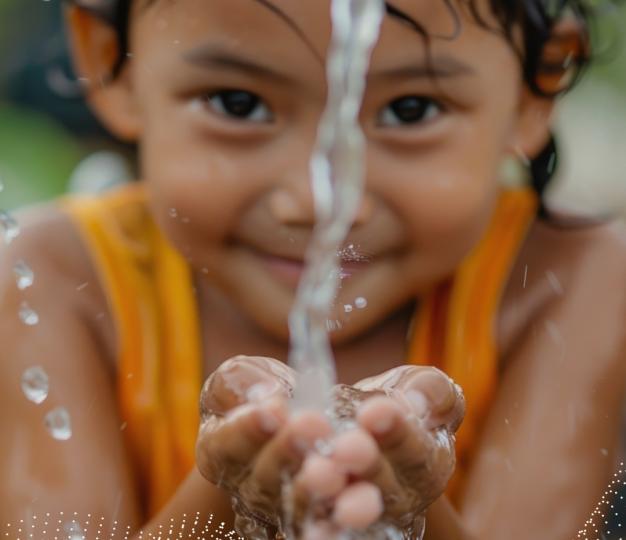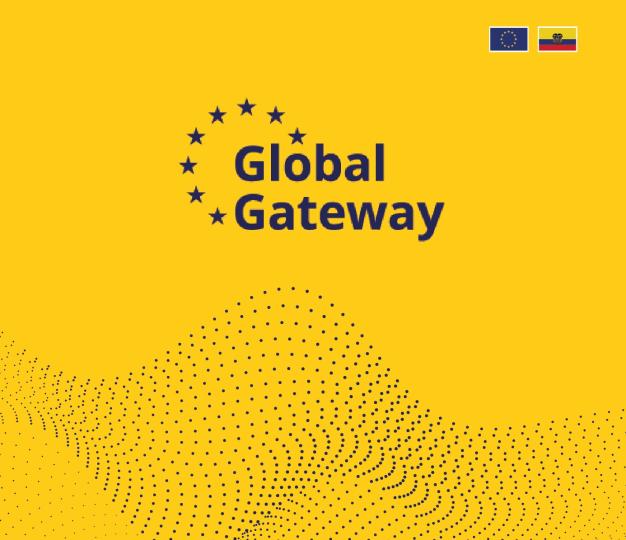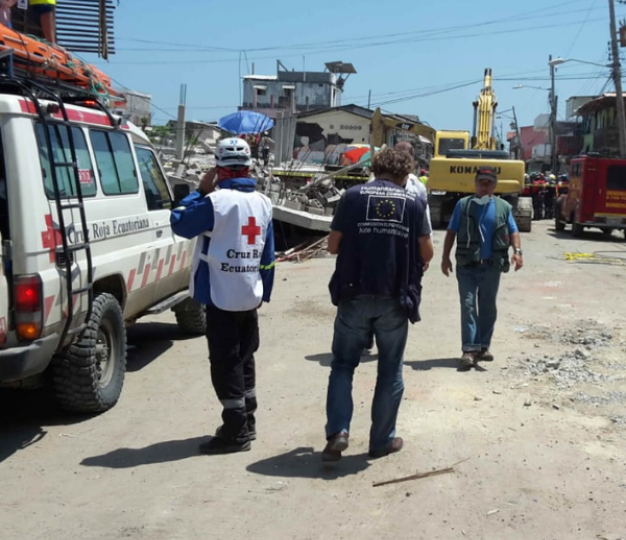The European Union and Ecuador
Relations between the EU and Ecuador have intensified in recent years, in line with the many political and institutional changes that have taken place in the country.
Conteúdo desta página
Political Relations
At the bilateral level, the authorities of Ecuador and the European Union hold once a year the mechanism of high-level political consultations, which allows the exchange at a high level of ideas to strengthen and deepen bilateral relations and develop a political and cooperation agenda.
The eighth meeting of this mechanism took place on 13 June 2024 in Brussels. The dialogue between the two delegations led by Ecuadorian Vice-Chancellor Barberis and EEAS Vice-Executive Director Pelayo focused on a number of topics including political and trade relations, development cooperation, security cooperation issues, human rights and governance, environmental management and climate change, and regional and multilateral issues.
Since 2020, the EU and Ecuador have established a Human Rights Dialogue; the fourth meeting of the Human Rights Dialogue took place in May 2024.
The political dialogue is also part of the broad framework of relations between the EU and the Community of Latin American and Caribbean States (CELAC), of which Ecuador is a member. This dialogue has brought about a qualitative advance in the depth and scope of relations between the two sides, including new areas such as the fight against illicit drugs, regional integration and the promotion of sustainable development.
The High Representative/Vice-President, Josep Borrell, and the former Minister of Foreign Affairs of Ecuador, Gustavo Manrique, signed on 17 July 2023 in Brussels, in the presence of the former President of the Republic of Ecuador, Guillermo Lasso, and on the occasion of the EU-CELAC Summit, a Memorandum of Understanding on the agenda for enhanced political and sectoral dialogue and cooperation for the next decade. The signing of this Memorandum of Understanding highlights the intention to strengthen long-standing relations between the EU and Ecuador.
Trade Relations
The EU-Ecuador trade relationship is an important component of Ecuador's economic development. Overall, the Trade Agreement (2017) has been highly beneficial for Ecuador, resulting in a 40% increase in bilateral trade since the entry into force and maintaining a substantial trade surplus - Ecuador presents a surplus in the 2017-2023 period of more than EUR 8,000 million.
Ecuador's preferential access to the EU market since 2017 has been highly beneficial, particularly when compared to its regional neighbours, Peru and Colombia. The country has successfully positioned itself as a major supplier of bananas and organic products. The main export products are bananas, shrimp, tuna, roses, cocoa and coffee.
This trade relationship not only strengthens Ecuador's economy, but also reinforces its commercial ties with the EU, guaranteeing a stable and profitable market for its agricultural products, allowing Ecuador to diversify and expand its export markets, especially for agri-food products such as pitahaya, passion fruit and pineapple.
The European Union is the third main destination for Ecuadorian exports. However, in the first four months of 2024, exports to the EU grew by 21%, placing it in second place.
While Ecuador enjoys strong trade relations with the EU, with bilateral trade amounting to €7.5 billion annually and a trade balance of €1.5 billion in Ecuador’s favour, foreign investment remains notably low, accounting for less than 1% of the country's GDP. This indicates a key issue: despite healthy trade, Ecuador struggles to attract the foreign investment needed for sustained growth and development.
Development Cooperation
The Delegation of the European Union in Ecuador manages a portfolio of comprehensive cooperation, aimed at supporting key areas for the development of the country, as well as strategic actors and populations in vulnerable situations. The European Union's cooperation strategy in Ecuador focuses on promoting the ecological transition, mitigation and resilience to climate change, reducing chronic child malnutrition by promoting safe water systems, strengthening deforestation-free value chains, and digital transformation.
In addition, through calls for non-reimbursable funds, the EU Delegation not only seeks to strengthen the technical capacities of civil society organisations, but also promotes the promotion of human rights, the eradication of gender-based violence, the strengthening of the electoral and democratic system, and the promotion of peace and social cohesion. Currently, the European Union has two platforms for dialogue with Ecuadorian civil society.
The first is the EU Youth Advisory Committee in Ecuador (CoCoECU), a space that allows young Ecuadorians to influence EU action, ensuring that their needs are identified and that actions to address them are more relevant and effective. The second platform is the Roadmap with Civil Society, a joint initiative conceived between the European Union in Ecuador, the Member States present in the country, and various international, regional and local organizations. This platform aims to consolidate an informed, participatory and representative Ecuadorian civil society, both in its sectoral activities and in issues relevant to the country.
Since 2023, the European Union has implemented the Global Gateway strategy in Ecuador, an innovative international cooperation and investment initiative that abandons the traditional "donor-beneficiary" model to adopt a collaborative partnership between peers, promoting more equitable and sustainable development. Global Gateway seeks to foster smart, clean and secure connections in key sectors such as digital, energy and transport, in addition to strengthening health, education and research systems globally.
In Ecuador, this strategy is implemented under the Team Europe approach, with initiatives financed and executed by cooperation agencies and European Member States represented in the country, along with direct investments from development banks in collaboration with the Ecuadorian State. The first Team Europe initiative in Ecuador is called "A Green Deal for Ecuador", which aims to boost the national green transition strategy, as well as catalyze European investments aimed at the development of drinking water and sanitation systems to reduce chronic child malnutrition, promote sustainable urban mobility and develop low-carbon climate projects and adaptation to climate change.
The second Team Europe initiative is the "UKUMARI Forest Alliance", which seeks the conservation of Ecuadorian forests, the promotion of the bioeconomy and biotrade, the prevention of forest fires, and the recovery of ancestral practices and knowledge about the sustainable use of forests through agroforestry.
Within the Global Gateway strategy, the European Investment Bank (EIB) has awarded Ecuador the third most important portfolio in South America, with more than one billion euros in areas such as Ecuador-Peru electricity interconnection, childhood vaccination, water and sanitation, among others. This portfolio combines concessional funds, EFSD+ financial guarantees, technical assistance and non-repayable funds.
Global Gateway
The European Commission introduces an innovative strategy for international cooperation and investment, which marks a new paradigm in international cooperation. This approach moves away from the traditional "donor-beneficiary" model to embrace a collaborative partnership between partners and peers, promoting more equitable and sustainable development.
It is presented as a model of connectivity between the EU and partner countries, based on mutually beneficial investment and long-term collaboration portfolios. This new perspective seeks to maximize benefits for all parties involved, fostering sustainable and equitable development that allows:
• Smart, clean and safe investments in quality infrastructure.
• Sustainable partnerships between people, goods and services around the world.
Global Gateway works in the following sectors:
1. Digitization
2. Climate and Energy
3. Transport
4. Health
5. Education and Research
In Ecuador, the EU is channelling significant financial resources in sectors such as water and sanitation, electricity interconnection and energy efficiency and sustainable transport.
Through the Global Gateway Strategy, the EU offers a wide range of financial instruments such as concessional funds, non-repayable funds, financial guarantees (EFSD+) and blending, which combines loans with non-repayable technical assistance.
Global Gateway seeks to boost economic growth, strengthen the infrastructure needed for sustainable development, stimulate innovation in services and job creation, and create jobs. Emphasizing that such investments must reflect values of social welfare, environmental sustainability, prior consultation, transparency and sound financial management.
Humanitarian Aid
The recent surge of extreme violence in Ecuador is has serious humanitarian consequences across the country: forced displacement, the recruitment of children into armed groups, civilian deaths and injuries. It severely limits access to essential services and goods.
Our humanitarian partners face many challenges to deliver humanitarian assistance to affected populations, including those already in need prior to the escalation of violence.
ECHO’s response prioritizes the protection of children and communities at large, providing health and mental health services. Populations are increasingly affected by targeted killings, disappearances, gender-based violence, forced displacements or confinements.
Our humanitarian response also assists populations on the move – mainly Colombians seeking refuge in Ecuador, as well as Venezuelans in transit - and the vulnerable host communities who help them.
It remains crucial to protect vulnerable populations exposed to natural hazards and disasters. Isolated, hard-to-reach and neglected communities bear the brunt of the combined effects of climate change and violence.
EU Humanitarian Aid funding for 2024 in Ecuador: 13.12 Million Euros
In 2024, the EU allocated nearly €22 million in humanitarian aid to South America, as well as €22 Million in Colombia and €31 Million in Venezuela.
All EU-funded humanitarian projects aim to guarantee access to food and water, effective protection, education, and medical care, among other actions. We pay particular attention to the impact of climate-related disasters, conflict, and violence on the indigenous populations in the region.
Since 1994, the EU has allocated €149.4 million to disaster preparedness projects in Bolivia, Brazil, Colombia, Ecuador, Paraguay, Peru, and Venezuela, fostering resilience at community level supported by strong national systems. The EU has also contributed to strengthening the regional disaster preparedness strategies in South America, paving the way for the signing of a dedicated Memorandum of Understanding between the EU and the sub-regional organizations in May 2024.
The EU’s disaster preparedness funding supports initiatives aimed at strengthening the capacity of local institutions and communities to cope with disasters, violence, and crises.




